#of course he’s going around being like
Explore tagged Tumblr posts
Text
People laughed at Anthony for this:
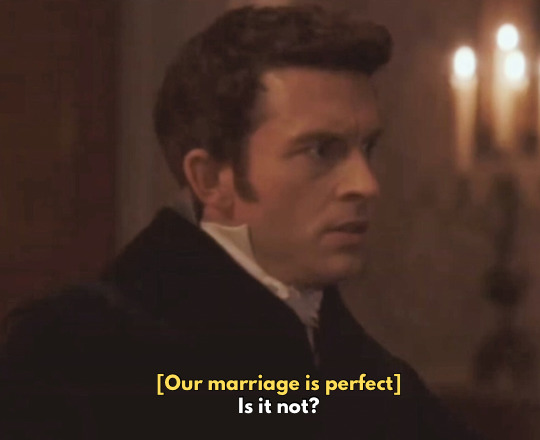
But, getting married literally solved ALL of his issues
Insomnia? Cured
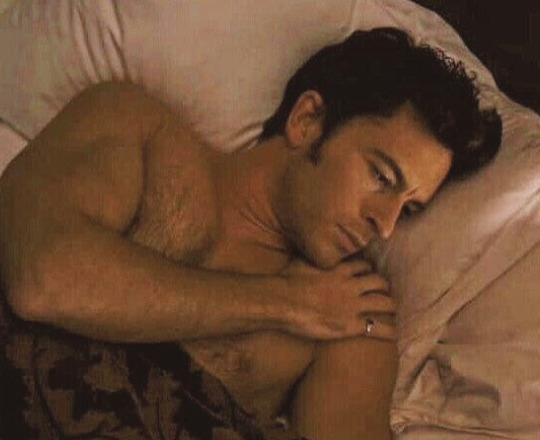

Alcoholism? He found something better to drink
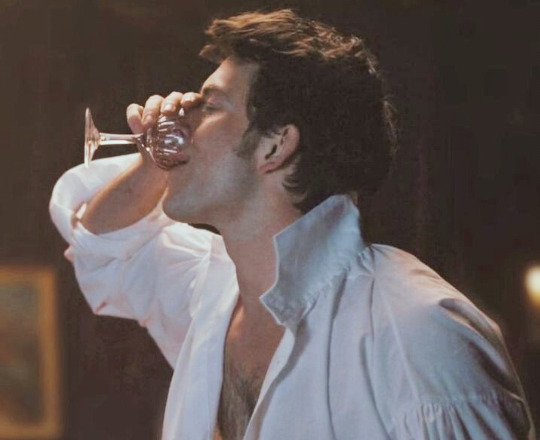
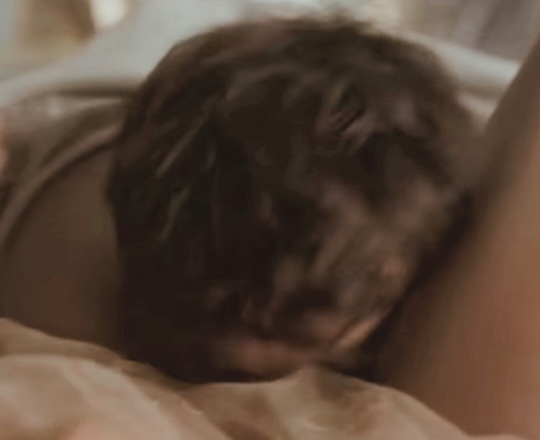
Anger Issues? Booped out of him

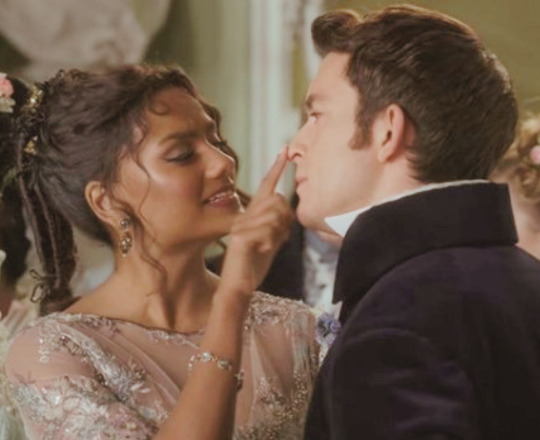
and THIS is who he’s married to:

Like of course, he has no complaints and thinks his marriage is perfect!!!
#bridgerton season 3#anthony bridgerton#kate sharma#kate sharma x anthony bridgerton#kanthony#bridgerton season two#bridgerton#bridgerton memes#LOOK AT HIS WIFE DAWG#why wouldn’t he think his marriage is perfect#marriage watered anthony’s crops and cleared his skin#of course he’s going around being like#🥰🥰🥰 my beautiful wife 🥰🥰🥰#🫶🏻🫶🏻🫶🏻 my perfect marriage 🫶🏻🫶🏻🫶🏻#you would too!!!
2K notes
·
View notes
Text

Regarding the Cherry Wine Incident.


#atla#avatar the last airbender#zuko#atla fanart#prince zuko#katara#atla art#sokka art#sokka fanart#tales from the couch#hozier#cherry wine#atla modern au#the gaang#atla zuko#zuko art#zuko fanart#atla sokka#sokka of the water tribe#princess yue#Yue is an AURORA and Paris Paloma girl. Sokka most definitely isn't. Hence the “weird coven music” comment. Please don't lynch my boy#(I can do that myself)#Zuko may play into the punk/alternative emo aesthetic sometimes but he is most definitely a Literature and Lyrics™ guy.#So of course *gestures wildly* Hozier.#(Zuko's “your sister?” comment is because Katara also fits Sokka's description. Florence + The Machine will do that to you.)#But I digress#Sokka—may La protect his soul—isn't really...lyrically inclined; shall we say. He just knows what kind of music Yue likes and goes:#“Slow music cottagecore vibes and lots of poetry—hey! She'll absolutely love this!!!”#Which is funny because he actually DOES like poetry. He just doesn't have a musical ear.#That being said—don't go around proposing to people with that song; kiddos. It's about domestic abuse.
719 notes
·
View notes
Text

I haven't watched this show a day in my life
#I have a vision for this show#Tommy invites Eddie with him to help him pick out a promise ring for Buck but Eddie acts super posturing a weird the entire time and Tommy#is eventually like “you wtf is up with you? I didn't know you had such string opinions on gold verse silver” and Eddie breaks and is like#“a promise ring?? I didn't know it was that serious between you two?”#“I held a funeral for a mummy for him of course its that serious. Why is that an issue are you in love with him or something?”#“Yeah actually”#“what”#and then the entire next episode is Tommy and Eddie doing elaborate wooing stunts to buck to try and win him over from the other#Buck is completely oblivious to eddies wooing because hes acting exactly the same#but now Buck is going around to the rest of the station like “Tommy is acting really weird” because Tommy doesnt do this kind of thing#but the station freaks because they think tommy is being an asshole agaib#also tommys actor is replaced with bobbys actor in a bad wig#to represent bucks daddy issues#911 abc#911 show#buddie#evan buckley#eddie diaz#destiel#destiel day
778 notes
·
View notes
Text

personal take on fem tsukasa
#no the white bow is not part of my vision...... my apologies#if i was more tsukasa literate id think more about how being a girl would change her character and how the people around her react to her#like. instead of 'oh shes surprisingly caring' maybe more like 'oh shes surprisingly disruptive as fuck' because of hashtag society#and hashtag gender roles and whatever#but like i said. not really that well versed on everything he has going on so im just gonna leave it at the design#ann art#prsk#pjsk#tsukasa tenma#femkasa#prsk fa#So stupid looking in every universe god bless#IG WHAT I MEAN IS being a role model of an older sibling and being responsible i feel are traits more expected in girls. so it wouldnt rly#be 'unusual' or unexpected of her to be like that. i think. idk.#among other things probably. like realistically a lot of her personality would be changed but ASSUMING its identical to the original.. what#sequence of events/reactions/perceptions would have to have happened to get there. yknow. maybe.#education major in several child psych/development courses in ur area ! my bad
360 notes
·
View notes
Text
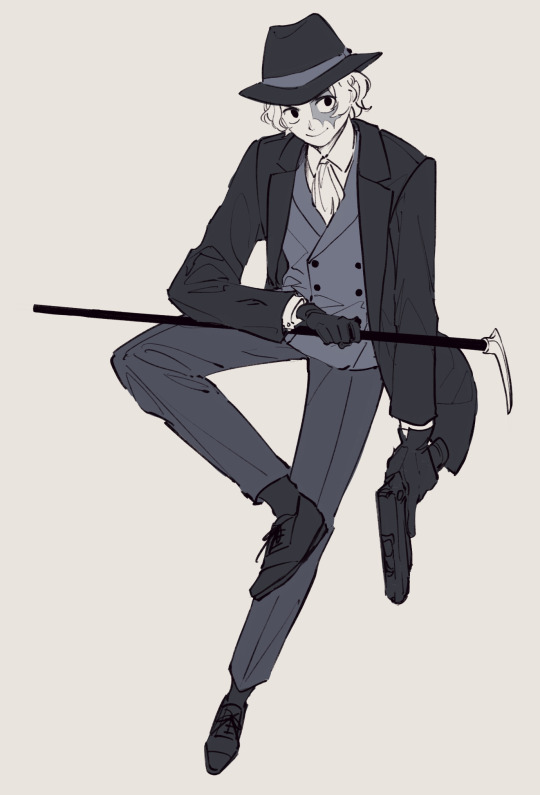
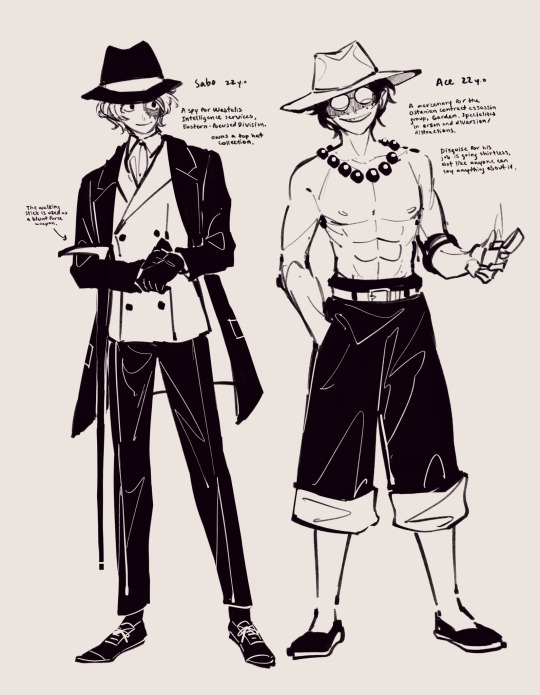

More doodles for the one piece spy x family crossover
#one piece#spy x family crossover#revolutionary sabo#portgas d ace#monkey d luffy#still debating on a spy codename for Sabo. since WISE seems to enjoy times of day I want it to have something to do with dawn or dusk#but that might be a bit on the nose#sabo’s walking stick is like his replacement for his pipe. blunt bludgeoning weapon that he can carry around in broad daylight#ace as an assassin decides his disguise is just going to be. being shirtless#plus those silly sunglasses but the main thing is the shirtless mess#because if he can’t be shirtless during the day in society then he might as well be shirtless when he’s out being a badass#the three of them are dumbasses (affectionate)#the only reason luffy looks as put together as he does is because sabo helped him pick the outfit and it’s extremely comfortable#mostly to help luffy get jobs. luffy does whatever job he feels like doing every day!#some days he’s a waiter some days he’s a gardener some days he’s a cashier#when Lois eventually gets over his paranoia over luffy popping up everywhere and finds out luffy is sabo’s brother he starts#paying luffy to babysit Anya. which of course means sabo is babysitting the both of them because trusting luffy to watch a child is maybe#not the best idea.
971 notes
·
View notes
Text
patience being tested. being forced by a bizarre unfortunate situation to adhere to university requirement technicality by taking this simple basic elementary "introduction to environmental history" class.
this class is from facilitators/program which do, like, "history of the American frontier" or "history of fishing and hunting" and still basically subscribe to that old-school twentieth-century idealization and celebration of characters like Teddy Roosevelt and reverence for a mythical arc-of-history-bent-towards-justice narrative of the often-clumsy but ultimately-benevolent US federal government and its mission to "save nature" through the miracle of "sustained yield," while heroic federal land management agencies and "heritage" institutions lead to way, staffed by exceptional individuals (appeals to nostalgia for the frontier and an imagined landscape of the American West; ego-stroking appeals to flattering self-image that center the environmentalist or academic). where they invoke, y'know, ideas like "ecology is important because don't you enjoy cross-country skiing in The Woods with your niece and nephew? don't you like hunting and fishing?" which makes it feel like a time capsule of appeals and discourses from the 1970s. and it invokes concept of "untouched wilderness" (while eliding scale of historical Indigenous environmental relationships and current ongoing colonial violence/extractivism). but just ever-so-slightly updated with a little bit of chic twenty-first-century flair like a superficial land acknowledgement or a reference to "labor histories" or "history from below," which is extra aggravating when the old ideologies/institutions are still in power but they're muddying the water and diluting the language/frameworks (it's been strange, watching words like "multispecies" and "Anthropocene" over the years slowly but surely show-up on the posters, fliers, course descriptions, by now even appearing adjacent to the agri-business and resource extraction feeder programs, like a recuperation or appropriation.) even from a humanities angle, it's still, they're talking at me like "You probably didn't know this, but environmental history is actually pretty entangled with political and social events. In fact, we can synthesize sources and glean environmental info from wacky places like workers' rolls in factories, ship's logs, and poetry from the era." and i'm nodding like YEP.
the first homework assignment is respond to this: "Define and describe 'the Anthropocene'. Do you think 'the Anthropocene' is a useful concept? Why or why not?" Respond in 300 words.
so for fun, right now in class, going to see how fast i can pull up discussion of Anthropocene-as-concept solely from my old posts on this microblogging site.
---
ok, found some
---
I think that the danger in any universal narrative or epoch or principle is exactly that it can itself become a colonizing force. [...] I’m suspicious of the Anthropocene as concept for the very reason that it subsumes so many peoples, nations, histories, geographies, political orders. For that reason, I think ideas like the Anthropocene can be a useful short-hand for a cluster of tangible things going on with the Earth at the moment, but we have to be very careful about how fluid and dynamic ideas become concretized into hegemonic principles in the hands of researchers, policymakers, and politicians. There’s so much diversity in histories and experiences and environmental realities even between relatively linked geographies here in Canada [...]. Imagine what happens when we try to do that on a global scale - and a lot of euro-western Anthropocene, climate change and resilience research risks doing that - eliding local specificities and appropriating knowledge to serve a broader euro-western narrative without attending to the inherent colonial and imperial realities of science and policy processes, or even attending to the ways that colonial capitalist expansion has created these environmental crises to begin with. While we, as a collective humanity, are struggling with the realities of the Anthropocene, it is dangerous to erase the specific histories, power-relations, political orders that created the crisis to begin with. So, I’m glad that a robust critique of the Anthropocene as a concept is emerging.
Text by: Words of Zoe Todd, as interviewed and transcribed by Caroline Picard. “The Future is Elastic (But it Depends): An Interview with Zoe Todd.” 23 August 2016.
---
---
---
The Great Acceleration is the latest in a series of human-driven planetary changes that constitute what a rising chorus of scientists, social scientists, and humanists have labeled the Anthropocene - a new Age of Humans. [...] But what the Anthropocene label masks, and what the litany of graphs documenting the Great Acceleration hide, is a history of racial oppression and violence, along with wealth inequality, that has built and sustained engines of economic growth and consumption over the last four centuries. [...] The plantation, Sidney Mintz long ago observed, was a “synthesis of field and factory,” an agro-industrial system of enterprise [...]. Plantation legacies, along with accompanying strategies of survival and resistance, dwell in the racialized geographies of the United States’ and Brazil’s prison systems. They surface in the inequitable toxic burdens experienced by impoverished communities of color in places like Cancer Alley, an industrial corridor of petrochemical plants running along the Mississippi River from New Orleans to Baton Rouge, where cotton was once king. And they appear in patterns of foreign direct investment and debt servitude that structure many land deals in the Caribbean, Brazil, and sub-Saharan Africa [...]. [C]limatologists and global change scientists from the University of London, propose instead 1610 as a date for the golden spike of the Anthropocene. The date marked a detectable global dip in carbon dioxide concentrations, precipitated, they argue, by the death of nearly 50 million indigenous human inhabitants [...]. The degradation of soils in the tobacco and cotton-growing regions in the American South, or in the sugarcane growing fields of many Caribbean islands, for example, was a consequence of an economic and social system that inflicted violence upon the land and the people enslaved to work it. Such violent histories are not so readily evident in genealogies that date the Anthropocene’s emergence to the Neolithic Revolution 12,000 years ago, the onset of Europe’s industrial revolution circa 1800, or the Trinity nuclear test of 1945. Sugarcane plantations were already prevalent throughout the Mediterranean basin during the late middle ages. But it was during the early modern era, and specifically in the Caribbean, where the intersection of emerging proto-capitalist economic models based on migratory forced labor (first indentured servitude, and later slavery), intensive land usage, globalized commerce, and colonial regimes sustained on the basis of relentless racialized violence, gave rise to the transformative models of plantations that reshaped the lives and livelihoods of human and non-human beings on a planetary scale. [...] We might, following the lead of science studies scholar Donna Haraway and anthropologist Anna Tsing, more aptly designate this era the Plantationocene. [...] It is also an invitation to see, in the words of geographer Laura Pulido, “the Anthropocene as a racial process,” one that has and will continue to produce “racially uneven vulnerability and death." [...] And how have such material transformations sustained global flows of knowledge and capital that continue to reproduce the plantation in enduring ways?
Text by: Sophie Sapp Moore, Monique Allewaert, Pablo F. Gomez, and Gregg Mitman. "Plantation Legacies." Edge Effects. 22 January 2019. Updated 15 May 2021. [Bold emphasis added by me.]
---
---
---
Geologists and other scientists will fight over [the definition of the beginning start-date of the Anthropocene] in scientific language, seeking traces of carbon dioxide that index the worst offenses of European empire which rent and violated the flesh, bodies, and governance structures of Indigenous and other sovereign peoples in the name of gold, lumber, trade, land, and power. [...] The stories we tell about the origins of the Anthropocene implicate how we understand the relations we have with our surrounds. In other words, the naming of the Anthropocene epoch and its start date have implications not just for how we understand the world, but this understanding will have material consequences, consequences that affect body and land.
Text by: Heather Davis and Zoe Todd. On the Importance of a Date, or Decolonizing the Anthropocene. ACME An International Journal for Critical Geographies. December 2017. [Bold emphasis added by me.]
---
---
---
From Aime and Suzanne Cesaire, C. L. R. James, Claudia Jones, Eduoard Glissant, through Sylvia Wynter, Christina Sharpe, and so many others, critical anticolonial and race theory has been written from the specific histories that marked the Black Atlantic. [...] Glissant also reminds us, secondly, of how cunning the absorptive powers of [...] liberal capitalism are - how quickly specific relations are remade as relations-erasing universal abstractions. [...] This absorptive, relations-erasing universalism is especially apparent in some contemporary discourses of […] liberalism and climate collapse - what some call the Anthropocene - especially those that anchor the crisis in a general Human calamity which, as Sylvia Wynter has noted, is merely the name of an overdetermined and specific [White] European man. […] [T]he condition of creating this new common European world was the destruction of a multitude of existing black and brown worlds. The tsunami of colonialism was not seen as affecting humanity, but [...] these specific people. They were specific - what happened to them may have been necessary, regrettable, intentional, accidental - but it is always them. It is only when these ancestral histories became present for some, for those who had long benefitted from the dispossession [...], that suddenly the problem is all of us, as human catastrophe.
Text by: Elizabeth Povinelli. “The Ancestral Present of Oceanic Illusions: Connected and Differentiated in Late Toxic Liberalism.” e-flux Journal Issue #112. October 2020.
---
The narrative arc [of White "liberal humanism"] [...] is often told as a kind of European coming-of-age story. […] The Anthropocene discourse follows the same coming-of-age [...] script, searching for a material origin story that would explain the newly identified trajectory of the Anthropos […]. Sylvia Wynter, W.E.B. DuBois, and Achille Mbembe all showed how that genealogy of [White subjecthood] was [...] articulated through sixteenth- through nineteenth-century [historiographies and discourses] in the context of colonialism, [...] as well as forming the material praxis of their rearrangement (through mining, ecological rearrangements and extractions, and forms of geologic displacements such as plantations, dams, fertilizers, crops, and introduction of “alien” animals). […] As Wynter (2000) commented, “The degradation of concrete humans, that was/is the price of empire, of the kind of [Eurocentric epistemology] that underlies it” (154).
Text by: Kathryn Yusoff. “The Inhumanities.” Annals of the American Association of Geographers, Volume 11, Issue 3. November 2020.
---
---
---
As Yarimar Bonilla suggests in regard to post-Irma-and-Maria Puerto Rico, “vulnerability is not simply a product of natural conditions; it is a political state and a colonial condition.” Many in the Caribbean therefore speak about the coloniality of disaster, and the unnaturalness of these “natural” disasters [...]. Others describe this temporality by shifting [...] toward an idea of the Plantationocene [...]. As Moore and her colleagues write, “Plantation worlds, both past and present, offer a powerful reminder that environmental problems cannot be decoupled from histories of colonialism, capitalism, and racism that have made some human beings more vulnerable [...].” [W]e see that contemporary uneven socioecologies associated with the rise of the industrial world ["the Anthropocene"] are based [...] also on the racialized denial and foreshortening of life for the sacrificial majority of black, brown, and Indigenous people and their relegation to the “sacrifice zones” of extractive industry. [...] [A]ny appropriate response to the contemporary climate emergency must first appreciate its foundations in the past history of the violent, coercive, transatlantic system of plantation slavery; in the present global uneven development, antiblackness, and border regimes that shape human vulnerability [...] that continues to influence who has access to resources, safety, and preferable ecologies [...] and who will be relegated to the “plantation archipelagoes” (as Sylvia Wynter called them) [...].
Text by: Mimi Sheller. “Thinking Beyond Coloniality: Toward Radical Caribbean Futures.” Small Axe (2021), 25 (2 (65)), pages 169-170. Published 1 July 2021. [Bold emphasis added by me.]
---
---
---
Indigenous genocide and removal from land and enslavement are prerequisites for power becoming operationalized in premodernity [...]; it was/is a means to operationalize extraction (therefore race should be considered as foundational rather than as periphery to the production of those structures and of global space). [...] Wynter suggests that we […] consider 1452 as the beginning of the New World, as African slaves are put to work on the first plantations on the Portuguese island of Madeira, initiating the “sugar-slave” complex - a massive replantation of ecologies and forced relocation of people […]. Wynter argues that the invention of the figure of Man in 1492 as the Portuguese [and Spanish] travel to the Americas instigates at the same time “a refiguring of humanness” in the idea of race. [...] The natal moment of the 1800 Industrial Revolution, […] [apparently] locates Anthropocene origination in […] the "new" metabolisms of technology and matter enabled by the combination of fossil fuels, new engines, and the world as market. […] The racialization of epistemologies of life and nonlife is important to note here […]. While [this industrialization in the nineteenth century] […] undoubtedly transformed the atmosphere with […] coal, the creation of another kind of weather had already established its salient forms in the mine and on the plantation. Paying attention to the prehistory of capital and its bodily labor, both within coal cultures and on plantations that literally put “sugar in the bowl” (as Nina Simone sings) […]. The new modes of material accumulation and production in the Industrial Revolution are relational to and dependent on their preproductive forms in slavery […]. In 1833, Parliament finally abolished slavery in the British Caribbean, and the taxpayer payout of £20 million in “compensation” [paid by the government to slave owners for their lost "property"] built the material, geophysical (railways, mines, factories), and imperial infrastructures of Britain and its colonial enterprises and empire. [...] A significant proportion of funds were invested in the railway system connecting London and Birmingham (home of cotton production and […] manufacturing for plantations), Cambridge and Oxford, and Wales and the Midlands (for coal). Insurance companies flourished [...]. The slave-sugar-coal nexus both substantially enriched Britain and made it possible for it to transition into a colonial industrialized power […]. The slave trade […] fashioned the economic conditions (and institutions, such as the insurance and finance industries) for industrialization.
Text by: Kathryn Yusoff. "White Utopia/Black Inferno: Life on a Geologic Spike". e-flux Journal Issue #97. February 2019. [Bold emphasis added by me.]
#sorry for being mean#instructor makes podcasts about cowboys HELP ME#and he recently won a New Business award for his startup magazine covering Democrat party politics in local area HELP#so hes constantly performing this like dance between new hip beerfest winebar coolness and oldfashioned masculinity#but hes in charge of the certificate program so i have to just shut up and keep my head down for approximately one year#his email address is almost identical to mine and invokes enviro history terms but i made mine long before when i was ten years old#so i could log in to fieldherpforum dot com to talk about enviro history of distribution range changes in local reptiles and amphibians#sir if you read my blog then i apologize ive had a long year#and i cant do anything to escape i am disabled i am constantly sick im working fulltime i have NO family i have NO resources#i took all of this schools graduate level enviro history courses and seminars years ago and ran the geography and enviro hist club#but then left in final semester because sudden hospitalization and crippled and disabled which led to homelessness#which means that as far as any profession or school is concerned im nobody im a retail employee#i was doing conference paper revisions while sleeping on concrete vomiting walking around on my cane to find outdoor wifi#and im not kidding the MONTH i got back into a house and was like ok going back to finish the semester the school had#put my whole degree program and department in moratorium from lack of funding#and so required starting some stuff from scratch and now feel like a hostage with debt or worsening health that could pounce any moment#to even get back in current program i was working sixteen hours a day to pay old library fines and had to delicately back out of workplace#where manager was straight up violently physically abusive to her vulnerable employees and threatened retaliation#like an emotional torturer the likes of which i thought existed only in cartoons#and the week i filed for student aid a massive storm had knocked out electricity for days and i was clearing fallen tree debris#and then sitting in the dark in my room between job shifts no music no phone no food with my fingers crossed and i consider it a miracle#sorry dont mean to dramatize or draw attention to myself#so actually im happy you and i are alive
134 notes
·
View notes
Text
Buck is the kind of guy to get turned into an animal. Any animal really but especially one with big wet eyes and general pathetic demeanor
#stealing from Cat but literally Eddie would look over on a call and Buck would just be there . 🦝 like this#and everyone would groan and go not again. but eddie would say alright come on bud lets get you fixed#and he would let buck ride around on his shoulders if he was a little animal while they went to see a witch or something to get it fixed#and maybe buck would realize he can get away with being all over eddie more when he is an animal... so he starts Trying to make it happen#and eddie notices of course and tells him something beautiful about how he loves him in every form but that doesnt mean he has to change his#or something. i am not eddie so i am not good with words#anyway yay buck animal#evan buckley#essence of buddie#in the tags anyway#original txt.
155 notes
·
View notes
Text
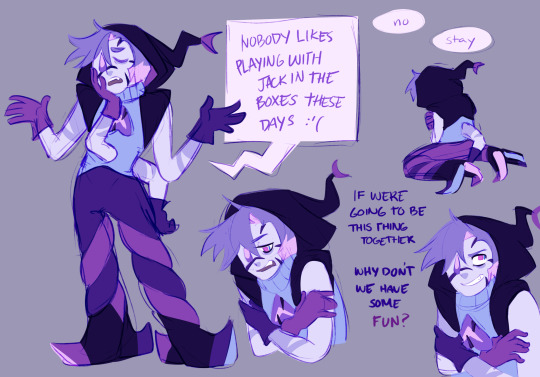
Last life charoite take 2! Feeling a lot better with this design ^^
#gemcyt#i personally really like the twisted legs ^^#he’s tangled up 🤯 and neither half is letting go 🤯🤯🤯🤯#or one half is holding the other hostage 🤯🤯🤯🤯🤯🤯🤯🤯🤯🤯#anyway the arm stripes are the second best thing to come out of this#second only to the legs of course#was also considering the possibility of the leg metaphor being the inverse#like normal charo=intertwined / LL charo=frayed#makes more sense since they’d be tripping all over the place with four legs flopping around🤔#but idk i guess im ok with normal charo = loose / LL charo = tangled in knots#doodlegroves
1K notes
·
View notes
Photo

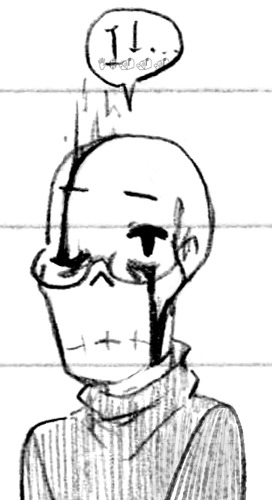
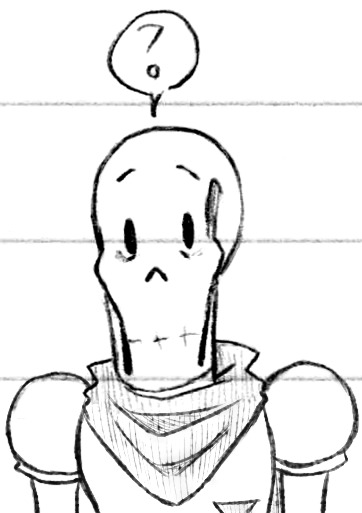
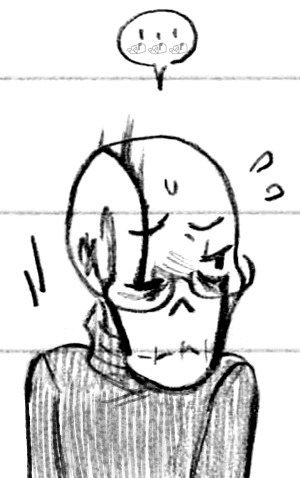
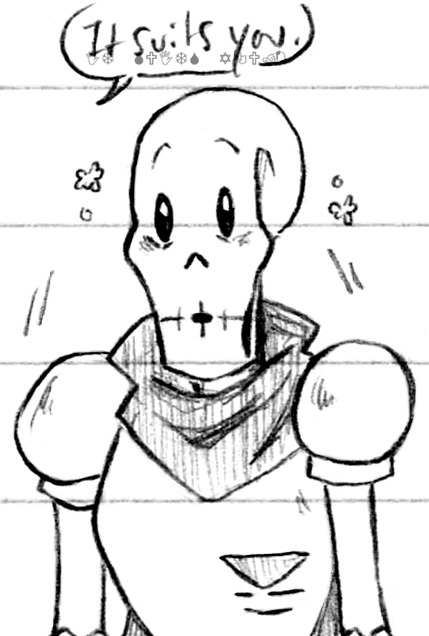

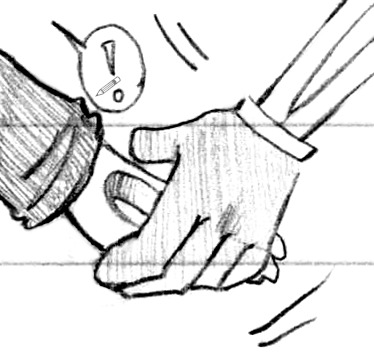
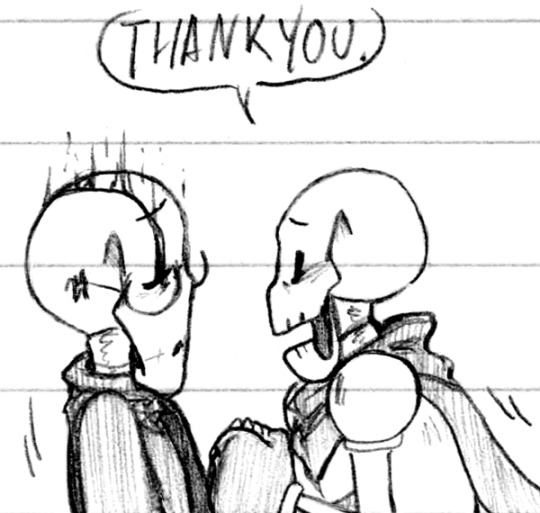
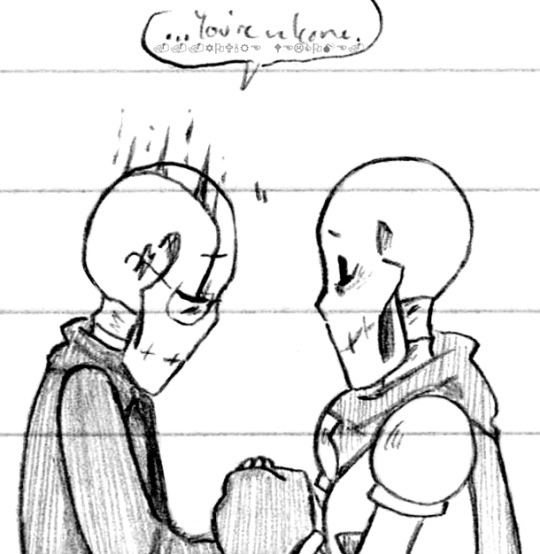
Gift (Patreon)
#Doodles#UT#Handplates#Gaster#Papyrus#Second go around! Maybe he can talk about it with the one who actually got the scarf!#Or not haha - better to just let some things lie#Though ♪ Of course Papyrus would recognize Gaster's efforts ♥ His emotional intelligence hhhh <3#He knows everything there was Gaster's initially and so reading between the lines of Gaster telling him he can have it#It's a gift! Properly! That deserves praise!! Good job you did something nice!#I also deeply love when Gaster is first pulled back out how one of his first little smiles is at Papyrus being silly#Gaster is also very prideful! It's cute to see his son being self-aggrandizing in that kid way! Seeing him enjoy it is so nice ;;#Also I know that Papyrus is still shorter than Gaster I just really like the idea of him being almost his dad's height ;;#He's so grown up now! He's grown into such a beautiful adult <3#It does make sense that he's still shorter considering the whole ''torn in half'' thing ahh#Maybe Gaster is leaning down just let me have this lol#I also ended up doing a lot of digital reconstruction on this one!#Especially panels 2 through 4 - I actually pulled out my tablet to draw in the bits that got cut off by the surrounding doodles#I wasn't as careful with my spacing with these oops :P But I think they turned out pretty style-matched :)#Cute lads happy <3
549 notes
·
View notes
Text
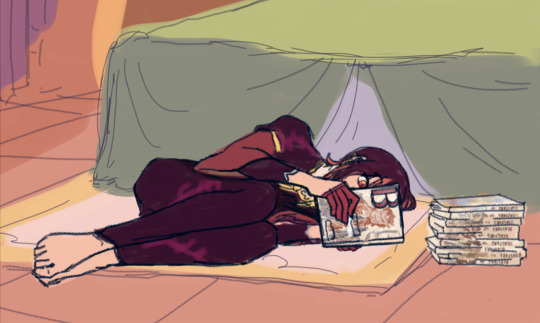
I started reading beastars so now HE's reading beastars .wait
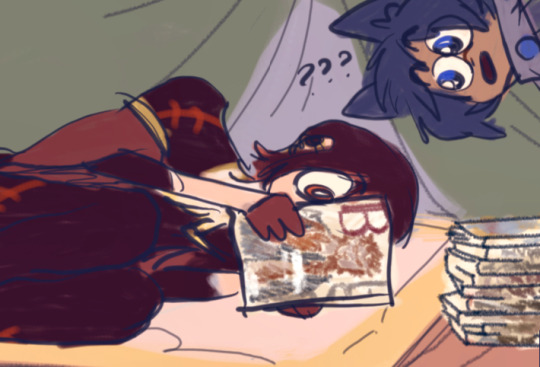
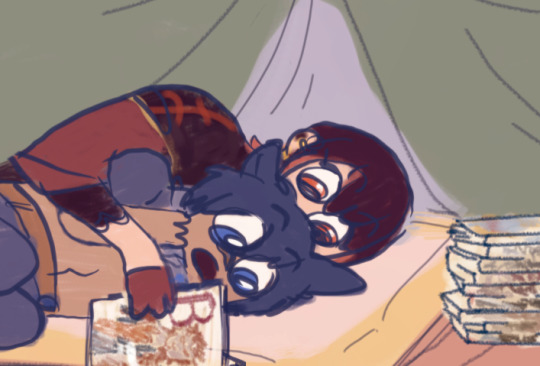
THEY'RE reading beastars
#nobody gets a prize for correctly guessing which character yakumo relates to most#when the anime first came out and everybody hopped on the hype train#i scratched my chin thoughtfully and wondered.... would i like this? it seems like i would like this. should i watch it?#and all my friends around me said 'nah you'll probably hate it. it's really sad'#so i trusted them and ignored beastars the whole time. until now. when i saw the entire series at my LOCAL LIBRARY!!!!#so of course the curiosity wins out and i start reading it and i REALLY LIKE IT?? WTF WERE MY FRIENDS ON ABOUT?#this is sad yes but most of the time it's FUNNY? and also ANIMALS R COOL? bruh. i can't trust my friends' opinions of me anymore#anyway. due to the nature of my current nuca fixation timing. i kept thinking of it while reading#drawing parallels that may only exist in my mind LOL#i can imagine yaku being a freak over legoshi and his quest to become strong but not falling to his instincts and etc.etc.#yakugaru having a manga reading session in either o their bedrooms... lying on the floor engrossed in beastly tales...#these two would absolutely have a debate about which chara is most similar to eiden#to yaku it is obvs haru but i feel like garu would see eiden in a less.... prey sort of way#or maybe they'd agree on the haru comparison!! but yaku might hesitate to voice the 'mr eiden... has to be protected...' thoughts#and garu would proudly proclaim how eiden and haru share traits like bravery/outgoingness/super cool and go-getter/wise and worldly???#i kept staring down louis like.... you're some mix of dante and edmond... and something else....#UGH i like all the characters... they all have their charms.... they are all such creatures#honestly yahya the entire time was just relatable content and after seeing the way he lived out the rest of his life *chef's kiss* GOALS#nu carnival yakumo#nu carnival garu
213 notes
·
View notes
Text
Okay but Tommy drops out of high school — he told his father he was gay and he told him he could either be homeless or go to military school. He goes to military school and joins the army and he likes flying the helicopters because it means he doesn’t have to do any of the killing himself. And he makes some friends.
There's one guy who's like the squad leader who's a few years old and built like a Greek god and Tommy's young and a little bit in love. And they're friends maybe even family because this whole group of people spend every waking (and sleeping) moment together. And they all talk like a family and they all say they love each other and tease each other and it's nice. And one night it's just the two of them trading a flask of some sort of alcohol that Tommy doesn't know the name of and the man asks Tommy why he joined the army and where he wants to be in five years and Tommy trusts this man. He's half way in love with him so he doesn't even think twice before he tells the story about the time he came out to his family and his father nearly beat him to death before sending him here. And the conversation tapers off after that and he doesn’t register the change in the air but when he wakes up the next morning he’s being dishonourably discharged because he poses “unacceptable risk to the high standards of morale, good order and discipline, and unit cohesion that are the essence of military capability”. He knows what that means.
Tommy joins the fire department because he doesn’t know what else to do. He represses anything regarding his sexuality because he knows now that it’s wrong. He almost feels like he has a family again because his captain seems to like him and some of the guys are cool even if they say things he doesn’t agree with. And then he starts agreeing because maybe they’re right and he’s wrong and he’s just inherently wrong. So he follows their leads and is just straight racist because that’s how he can fit in.
And then a black lesbian woman joins and says she’s a black lesbian woman and Tommy doesn’t understand that either because you can’t be queer you just can’t be because it’s wrong.
But he nearly dies and and an Asian man saves his life and a black lesbian woman comes up with a better idea than any of them had and she tells them she’s no different and she is just as capable. So he improves himself he does and he tries to be better but he still can’t be who he is because the last 2 times he was honest about that he was betrayed.
Tommy leaves the 118 and “don’t ask, don’t tell” is lifted and he meets this guy he likes who likes him back and the 217 don’t seem to have a problem with the gender neutral pronouns and he slowly but surely lets himself open up again and be who he is and when the thing with that guy doesn’t work out because he’s moving to New York and Tommy’s not sure he’s ready to leave, it’s okay because his crew is there and they support him and he can still be himself.
#years later he flies a helicopter into a hurricane for the same people who stopped him from going too deep#into something he didn’t even believe in#and there’s this guy with a birthmark above his left eye and the widest smile there is#and he’s saying absolute nonsense and Tommy can’t help but smile#and there’s this other man too also gorgeous but not his type#who has all the same interests as him and he thinks if anything he’s made a new friend#and then the cute dorky guy calls the next day stumbling over his words saying his name is evan - from the rescue mission#and he asks for a tour of the 217 and Tommy agrees because how could he say no#and then he’s asking to go out but he already has plans but rain check? because there’s something about this guy that maybe…#and Tommy thinks that’s it but then evan turns up everywhere#and then things get a bit funny and Tommy feels like it’s his fault and he has to apologise#so he goes to Evan’s house not expecting anything just to say sorry#and Evans there looking absolutely amazing as always and he’s saying things that Tommy can’t help but read into#and he’s getting closer and closer and Tommy can’t help it#he kisses him and keeps his eyes shut just a moment longer just in case#he doesn’t want to open his eyes and see a disgusted look across Evan’s face so he stays closed just a little longer#but evan just looks like his brain has restarted and he’s nodding and joking when Tommy asks if that was okay#and they’re going on a date#and it hurts when evan says those worlds because tommy has spent long enough in a closet being someone he’s not and hurting people#and he can’t go back there he just can’t and he doesn’t want to be the one to force evan into anything so he leaves#and then he gets a call a stuttered invitation to meet at a cafe and of course Tommy says yes#he doesn’t know what he expects but it’s not this#Evans beaming at him with the brightest smile asking him to be his date to his sisters wedding#how can he say no when he looks like that (as long as he never buys coffee again)#and evan holds his hand even though everyone is around and ok that’s good#he’s late to the wedding and practically dead on his feet but he said he’d be there so he comes and the moment evan sees him#hes kissing him and he’s ok that’s great he could get used to this#bucktommy#911 abc#tommy kinard
112 notes
·
View notes
Text
i stand by that a better, more sensible, and more intriguing plot for TSATS would have been, instead of retconning literally everything:
Bob is dead (because he was very explicitly absorbed/killed by Tartarus Himself in House of Hades, alongside Damasen), and nobody is going into Tartarus to save him. He made his sacrifice and is gone. However. Remember how the Titans, including Bob, were just kind of kicking around for several years? Particularly. On a cruise ship full of mortals. And Bob happened to be kicking around in general for an extra year versus all the other Titans. And he mythologically sometimes has a mortal demigod son who partook in the Calydonian Boar Hunt (Dryas of Calydon). Yeah.
So turns out, Bob/Iapetus leaves behind a demigod (demititan?) child. And because Nico was pretty much his only friend, he named Nico his child's godfather. And while he's not being left in charge of the child, as a son of Hades and godfather to this kid, Nico is duty-bound to fulfill Bob's last will and go find this like 2 year old to make sure they're safe. So Nico has to undertake this very unusual quest (that raises many questions, such as "demititans are a thing?" and "DOES THIS MEAN THERE'S POTENTIALLY MORE-?!" and "SHOULD WE BE CONCERNED ABOUT THIS?") and is kind of freaking out because. He's the son of Hades! He's notoriously bad with living things, and animals, and definitely small children! Even if he does find this kid and assure they're safe, he is the last person who should be undergoing any kind of quest involving even potentially having to babysit. Fortunately, his boyfriend is the human embodiment of sunshine and calmness and good vibes, and also once helped a nymph give birth, so he feels Marginally More Confident in theoretical demititan babysitting and offers to come along on this Epic Journey of Figuring Out What In Hades' Name Is Up With This Demititan Baby Business.
Proceed with wholesome epic shenanigans quest of Nico and Will scurrying around trying to locate this random OP baby while Nico has an existential crisis about the nature of his powers because he doesn't want to let Bob down! Both for Hades Kid Honor Reasons and because Bob was his friend! But what if he's destined to fail this quest just because of who he is? Because he's simply not built for hanging out with the living/mortals? And Will reassuring him that He Will Probably Not Traumatize The Weird OP Titan Baby And It'll Be Fine, and simultaneously getting a peek into the weird other life Nico leads hanging out with immortals much more than the average demigod, which Nico considers his norm. Bonus shenanigans of both of them getting caught off-guard and culture shocked from where each other's respective worlds (Nico's mostly-immortal versus Will's mostly-mortal) cross over and learning to navigate those for each other - Nico finally starting to make some mortal connections and get glimpses at modern mortal American life, and Will trying not to get his brain literally incinerated while Nico's happily casually catching up with some of his old friends who happen to be literal gods.
#pjo#riordanverse#nico di angelo#will solace#solangelo#long post //#LISTEN I JUST THINK WE DONT NEED TO BE RETCONNING THINGS WHEN THERE IS A HIGHLY INTRIGUING MYTH RIGHT THERE#listen. *listen.* Iapetus in myth has a demigod child? and we're in the series? that's all about demigods?#and had titans running around for 4 years? some primarily on a giant ship mostly full of mortals?#and Iapetus himself was running around for closer to like 5 years?#I AM JUST SAYING. that is enough time. and the right conditions. that there are perhaps demititans now.#that alone is a fascinating plot set-up that ties in basically all previous series inherently and has a reasonable starting point#of *course* Nico would be named Bob's child's godfather!#of *course* Nico would consider it a very important personal duty to see out Bob's final will and go on some quest about it!#and under those conditions it makes *perfect sense* for Nico to want to bring Will along! and that he would be very helpful on said quest!#bringing along a lot of skills and abilities in areas that Nico lacks! that are crucial for a quest like that!#also then immediately the plot becomes Will reassuring Nico about his powers being cool and not evil and him being spooky is okay#while Will is also trying to not literally have his brain melt cause Nico's casually introducing him to a trio of death gods or something#forgetting that Will cannot look upon a god's true form#and Will's dragging Nico across the US while Nico is struggling to keep up cause Will forgot that Nico's not American and not from that era#its cute! it's interesting! it immediately begs the question of a next-gen series focusing on a main cast of demititan kids#dont go back to Tartarus that's lame and overdone and ruins a ton of stuff. dont retcon everything that also ruins a ton#give us the fluffy roadtrip comedy that they clearly wanted to write instead anyways#you can even keep the elements of Nico feeling out of his depth and Will constantly on the verge of death. except it makes sense this time.#and it's kind of funny cause Nico's just freaking out over babysitting and it highlights how much tankier Nico is vs Will#even just in casual interactions. yeah Nico can casually look upon a god's true form. dont worry about it#meanwhile Will is slowly collecting sunglasses the entire trip and layering them up for whenever Nico introduces him to another deity
322 notes
·
View notes
Text
cause really truly honestly I don't think I can get into something with only dudes and even when it's mostly dudes I Will find a way to put at least half my focus on whatever diversity hire girl they got hanging out w them
#it was hard being into genshin cause i think most of them guys were incredibly mediocre but for every uggo theres some diehard fan and i#couldnt wrap my head around it. to each their own of course no judgement ✋🏾but like damn#well hard being genshin fandom adjacent i was in my own world for most of that#speaking of. sorry sidebar. the ororun glazing omg. even if the racism was put aside he aint Even cute what is going on#it has gotta be personality cause he actually is ugly and boring looking as hell 😭#kae.txt
44 notes
·
View notes
Text
I just think Tallulah gets to be upset about this. “It’s not Wilbur’s fault” “He’s not a bad dad” “He loves his daughter so much” yes! These are all true! And it’s not his fault! But he’s still not there. And Tallulah has gone through so much and still hasn’t seen him, the one time he was around was the one time she wasn’t, and all she has are letters and “I’m thinking of you always” and things that used to be theirs together, but he’s still not there. She’s waited and she’s been patient and she’s loved him all the same, and he’s still not there. Like yesterday, and the day before, and the day before, from the happy milestones to the traumatic events, he’s still not there.
She knows that it’s not his fault, but it doesn’t change the fact that he’s absent. That in and of itself just adds to the sorrow, because she knows why he’s gone, and she’s been told time and time again it doesn’t mean he doesn’t care, she knows this - it doesn’t mean it doesn’t sting, that it doesn’t hurt, that she doesn’t yearn for her father to be there more than anything in the world, and he’s just not there.
So yes, she gets to be upset, and be caustic, and stomp her feet and write bitter messages, and be angry and vitriolic, because she’s a little girl missing her father, who feels things with her whole heart and soul - and that means she gets to feel the ugly parts of it, too.
#it’s like no wilbur isn’t at fault. especially if we’re talking about cc wilbur. but fuck man of course she’s gonna feel like this#this doesn’t make wilbur a bad person! he’s just a missing one. and Tallulah feels all the misery and bitterness as a daughter left behind#where is her father kissing her injuries and reassuring her? where is her father protecting her? hugging her at the end of the day?#Wil isn’t around to do this and she wants him back and he’s not going to be back. not for a while. and it’s not his fault but it doesn’t#stop it from being upsetting. she’s a little girl#and at least she has phil. her dad. who’s there time and time again. and it doesn’t make him somehow morally better or wtevr. he’s there an#Wil is not. and he’s going to continue to be there as a solid figure in tallulahs life that she needs#idk man like. fuck#lmao relating my own experiences from here below in the tags ✌️#as someone who’s been in that position? a parent absent for reasons outside of control? yeah it’s sucks. and I love them and they love me#*with a parent I mean I wasn’t the parent lmao#and it will never be the same. and when they were gone and missing things I was furious at them#that resentment grows and then it fades and sometimes bitterness strikes again and it’s how it goes. love is still there#and it’s no one’s fault. it just is. and what is is messy#anyways#mcyt#qsmp#q!tallulah#q!wilbur#z speaks
156 notes
·
View notes
Text
A little comparison of Lieutenant Lyste's voice in the English and German dub (+ a little bit of Kallus too); because I find languages interesting and this made me really think about how a voice actor can influence how a character is perceived.
First of all, I've watched Rebels primarily in German so far (though I've seen a good amount of scenes in English as well), partly for nostalgia reasons (I was in my teens, probably around 14 when I first watched the series and my English wasn't that good at the time to just casually watch an entire series, plus I was watching it with my younger sister), but also because I think the voice actors especially for the main and recurring characters are genuinely doing a really good job. Heck, for some characters I might actually prefer their German voice because it is that good! Kallus might actually be a good example for this if he's already here, I think he has such a pleasant roughness in his voice. For Thrawn it's also a pretty close match, he sounds wonderful in both variants but I might prefer his German voice just by a teeny tiny bit.
Who I actually wanted to talk about is Lieutenant Lyste though. I'm mainly familiar with his German voice, and as he's a fictional crush of mine, this is also the voice of his that I've fallen in love with. When I imagine him talking - regardless in which language - the sound is that of his German voice. Personally, I feel like that voice makes him seem a little younger and more naive compared to his English voice. I've always headcanoned him to be fairly young, in his early to mid twenties, and that by the start of the series he had just completed his military training recently (his position as supply master might have been the first one where he had to bear more responsibility). I've always seen him as a guy who's motivated and just trying his best, but at the same time he's lacking experience, plus, if we're being honest, when it comes to his military career he's a pretty average guy. I think he'd learn and improve over the years, but he isn't the "best of his academy year" or "promising young talent with innovative ideas" kind of guy, and he's far from a mastermind like Thrawn. He's literally Just A Guy, and personally, that's actually something I really like about him and that makes him endearing to me.
In contrast, I think his voice in the English dub makes his age a bit more ambiguous (I still wouldn't guess him older than 30, also based on his appearance but I feel he seems less "boyish" than in the German dub). I think it also gives him a bit more of an arrogant tinge and less of the playfulness that at least I hear in his German voice. He still conveys that dutifulness, but he seems a bit more uptight as well. I wouldn't go so far to say that that's bad, and I still like his English voice as well, but I think for me it won't come close to the charm that his German voice has to me.
Towards the end I want to point out though, that the voice, while being an important aspect, is not everything that makes a character. Appearance, behaviour, body language, actions and decisions contribute to that as well. What I found interesting is that most headcanons that I read about Lyste actually still overlap closely with my own as well, even though I heavily assume that not all people who wrote them are familiar with his German voice. I would say that this is a good thing, because his core personality is still conveyed across language barriers, even though the way that different actors voice him may emphasise different aspects of his character more or less.
#oh yess the Star Wars obsession keeps going as it seems#and as he's an f/o and blorbo of mine even more so and because I love rambling about languages why not combine the two#but seriously I find his German voice so adorable💕#also I feel like he's one of the *very* few f/os of mine who's actually around my age lol#that's unusual so I think he deserves the spotlight for being able to make me fall for him regardless xD#also the episode this clips is from (S3E17) is legit probably my all-time favourite from Rebels#like it has Kallus? Lyste?! THRAWN of course??! like the whole episode I get to look at characters I really enjoy looking at :DD#<- Kallus is not an f/o of mine btw but I still like him a lot#also thought about swapping the subtitles for the German version but there weren't any available and I was too lazy to add them manually#star wars#star wars rebels#lieutenant lyste#yogar lyste#agent kallus#alexsandr kallus#voice acting#fictional other#fictional crush#self ship#selniaspost
65 notes
·
View notes
Text
a fan in this panel i'm watching asked about the cas and collette paralells so i got curious and went looking through s10 for castiel and collette mirroring but i didn't find any so now, genuinely wondering what's being paralleled between the two in a way that also mirrors dean and cas to cain and collette, i just straight up looked it up on here and the num1 reason just seems to be sam omission
#like it's very largely hinged on the fact that they didn't cast an abel#(<- which already doesn't make sense bc the whole point is that he's dead. cain killed him#his absence is needed for cain's character to have an impact. especially on dean. whose abel is working on getting rid of the mark#ANDDD is acting as a surrogate collette during the interim of him having the mark)#and that seems to give them the room they need to ignore sam's role in the moc arc entirely#there's a lot of just saying that the parallel is there and that cas mirrors the role/sits in the role of collette but no evidence#but i've seen gifsets of the sam and collette mirroring... so...#cas is also very much more so directly involved with sam and angel politics than he is to dean in this season so#like all the sneaking he does for dean is on behalf of sam. so there's a massive amount of canon cas omission going on here as well#looks around. no one is surprised. every one is getting up and leaving actually#anyway i think u could say that dean's entire support system was dean's collette and even that would make more sense than it just being cas#also jensen's response to this question was to tell the story about how he stabbed jared in the scene after dean kills cain#and they acted it out because of course they did they act it out every time#ludere
31 notes
·
View notes